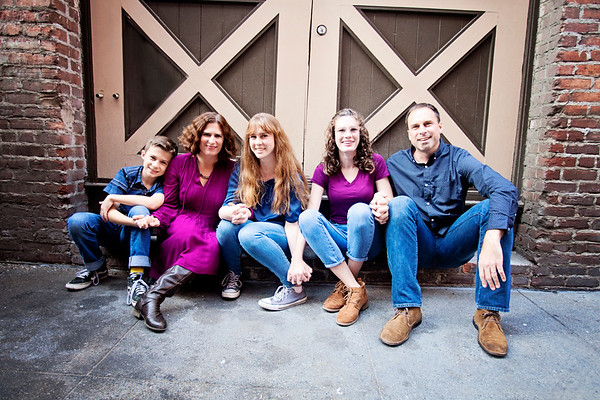This year we are going to look at what it means to parent with character and how to be passionate about the things that matter and last. It is never too late to start something good or end something bad. At the end of the day, your children will remember how you finish, so we want to encourage you to finish well. In our series, we want to create a passion for character in us and in our children by:
- Reflecting the One in whose image we were made
- Spending time with our children/grandchildren so they see the reflection
- Asking for forgiveness when we do it wrong.
If character qualities are in my life, I will be able to talk about them with authenticity.
Parenting is a ministry with long range results. Who I was as a person made more of an impact that what I did. Time goes by so fast, so be sure to make intentional time for family. Every minute we spent with our children was worth it.
Training A Child of Character In A Crazy World
Lately, it feels like there is a push-pull tension between character and culture. If we are honest, sometimes we are more concerned with our reputation than our character. As parents, we need to make an intentional plan to develop character in our children. It is the difference of acting versus reacting to challenges as they arise. How do we do this?
God Is . . . We Can Be!
But the fruit produced by the Holy Spirit within you is divine love in all its varied expressions:
Galations 5:22-23 [The Passion Translation]
joy that overflows,
peace that subdues,
patience that endures,
kindness in action,
a life full of virtue,
faith that prevails,
gentleness of heart, and
strength of spirit.
Never set the law above these qualities, for they are meant to be limitless.
I love this Passion Translation of the fruit of the spirit because it illustrates that joy, peace, patience, kindness, goodness, faithfulness, gentleness, and self-control all stem from DIVINE LOVE.
Love is large and incredibly patient. Love is gentle and consistently kind to all. It refuses to be jealous when blessing comes to someone else. Love does not brag about one’s achievements nor inflate its own importance. Love does not traffic in shame and disrespect, nor selfishly seek its own honor. Love is not easily irritated or quick to take offense. Love joyfully celebrates honesty and finds no delight in what is wrong. Love is a safe place of shelter, for it never stops believing the best for others. Love never takes failure as defeat, for it never gives up.
Love never stops loving . . . For now we see but a faint reflection of riddles and mysteries as though reflected in a mirror, but one day we will see face-to-face. My understanding is incomplete now, but one day I will understand everything, just as everything about me has been fully understood. Until then, there are three things that remain: faith, hope, and love – yet love surpasses them all. So above all else, let love be the beautiful prize for which you run.
1 Corinthians 13:4-8, 12-13 [The Passion Translation]
Love and good character are intentional. Hair, teeth, and bodies with grow on their own, however, character needs to be cultivated. I love this Lewis Carroll dialogue in Alice In Wonderland between Alice and the Cheshire Cat:
‘Would you tell me, please, which way I ought to go from here?’ [asked Alice].
‘That depends a good deal on where you want to get to,’ said the Cat.
‘I don’t much care where–‘ said Alice.
‘Then it doesn’t matter which way you go,’ said the Cat.
This is great reminder that we need to make a plan for what type of character we want to cultivate in our children. What legacy list of character qualities do you want in your adult child?
Here are a few suggestions to get you started: sensitive, polite, modest, discreet, strong, joyful, peaceful, respectful, patient, kind, hard-working, cooperative, honest, self-disciplined, faithful, good communicator, competent, confident, teachable, sense of humor, thankful, loving.
Our home is a rehearsal hall to build or tear down good character. What are you rehearsing?
Character Assessment
Let’s be real about our own strengths and weaknesses. Our strengths highlight our character and competence. Our weaknesses show our lack of character or basic skill set. Some reasons why we don’t grow can be because we have a bad habit of ignoring our flaws and don’t take the time to deal with our flaws. When we don’t grow, we stay stuck in our flaws, make excuses, see faults in others, and then go on auto-pilot (or become a Parent Vending Machine). It takes humility to want to grow. Character starts on the inside and flows into our actions. We can’t fix our spouse/children, but we can make it difficult for them not to grow when we, ourselves, are not growing.
Make a commitment today to change and grow . . . because character matters. When you wake up in the morning, declare, “Today, I am going to grow in character by being/doing ______”. At the end of the day, ask, “How did I do?”
Accept and give forgiveness to yourself and others. Remember that tomorrow is a new day for you, your spouse, and your children.

